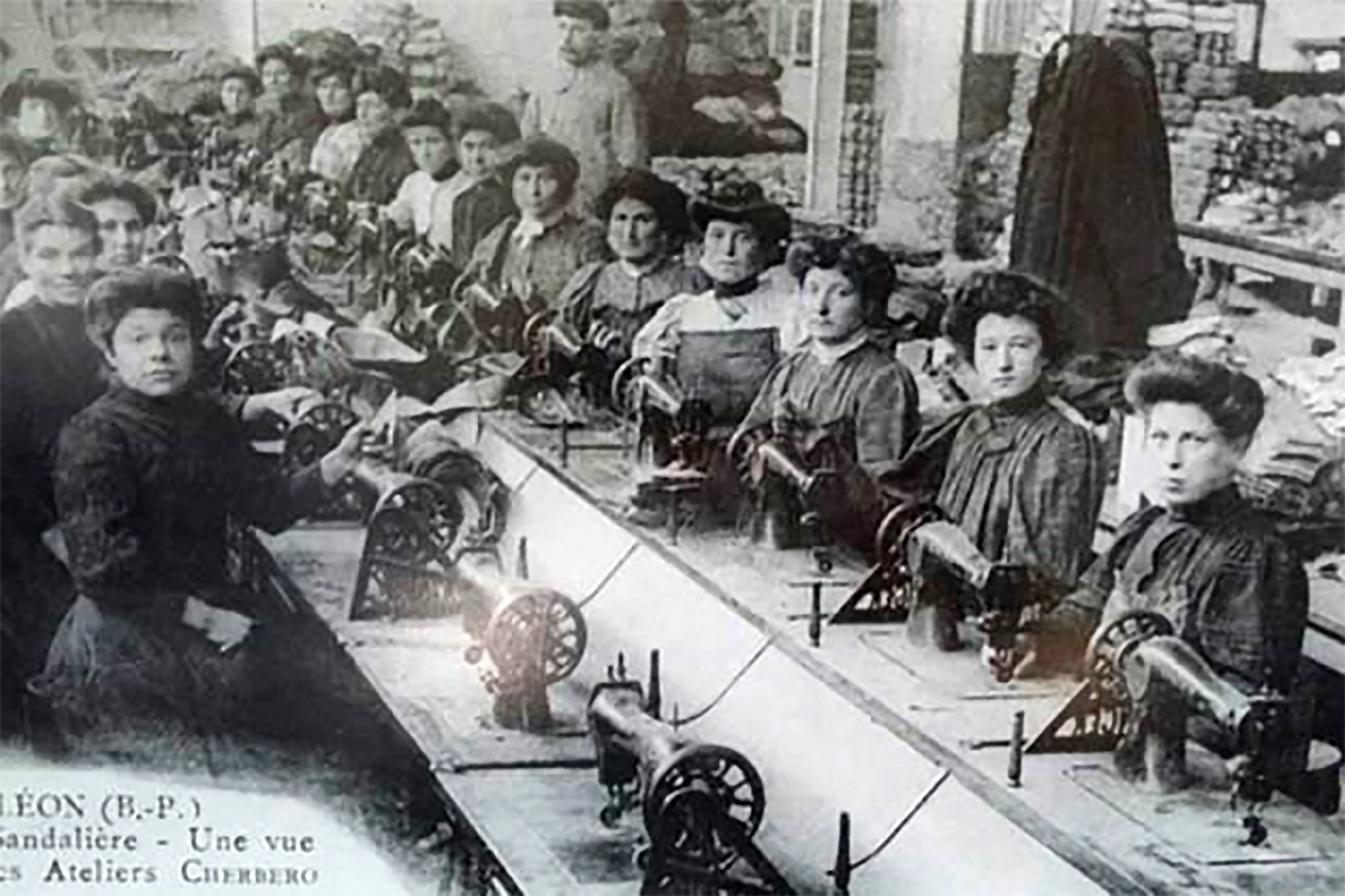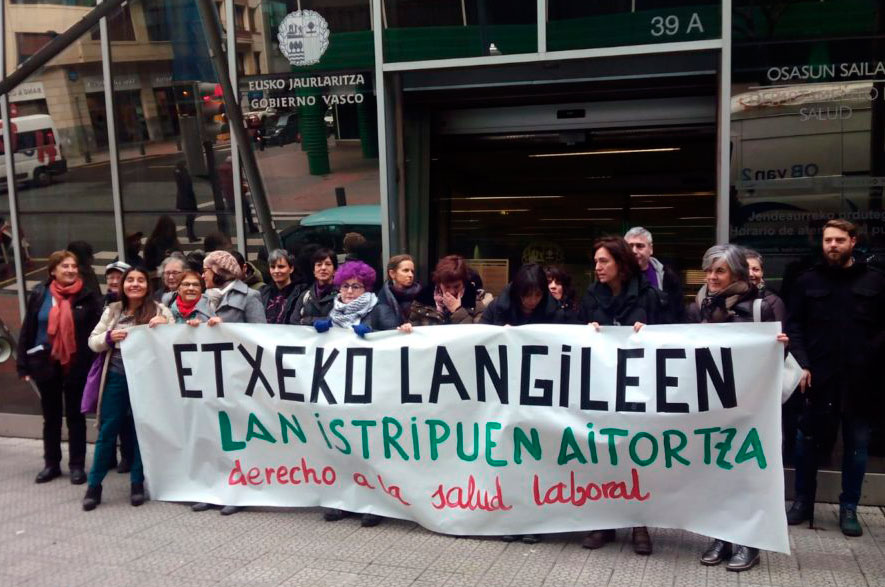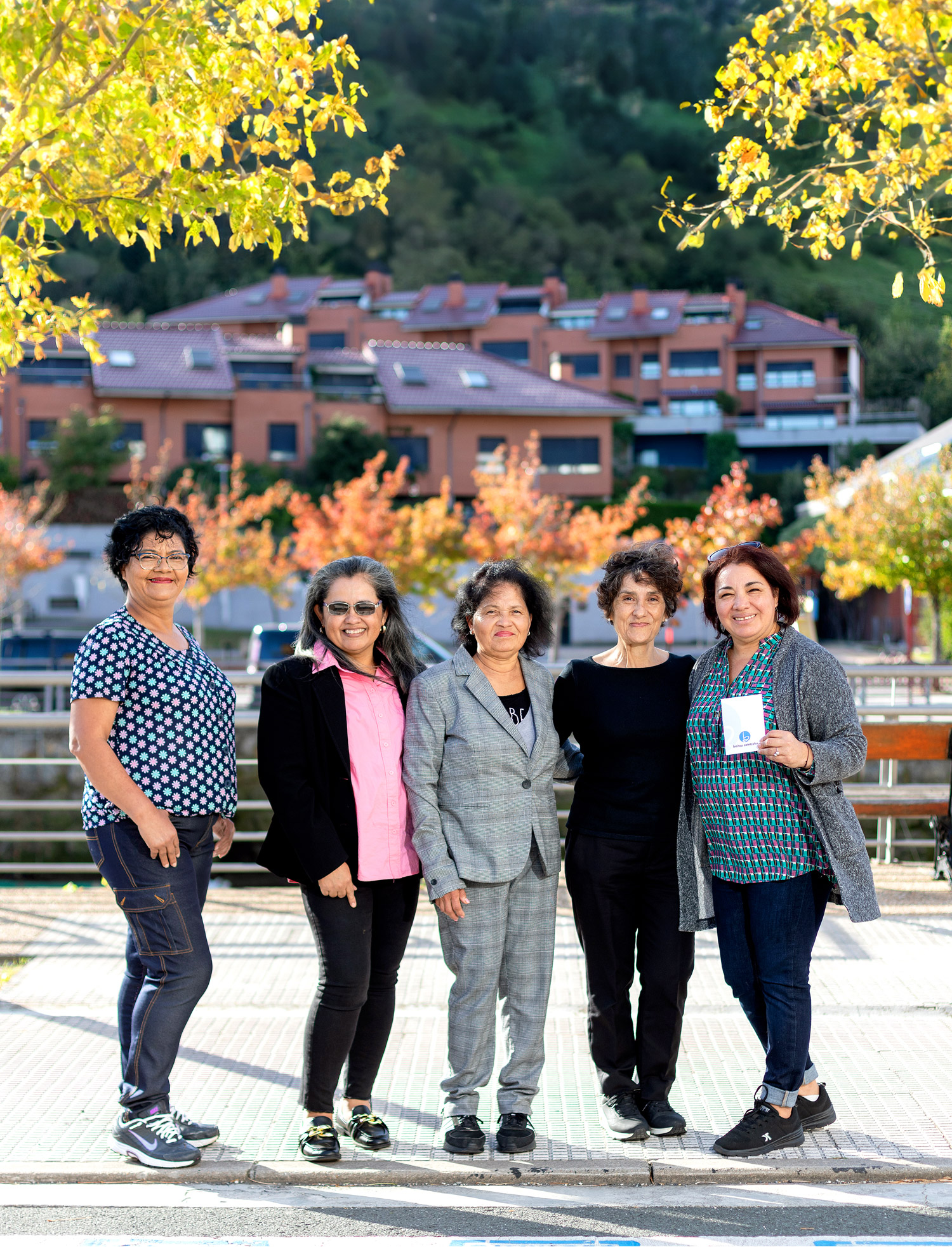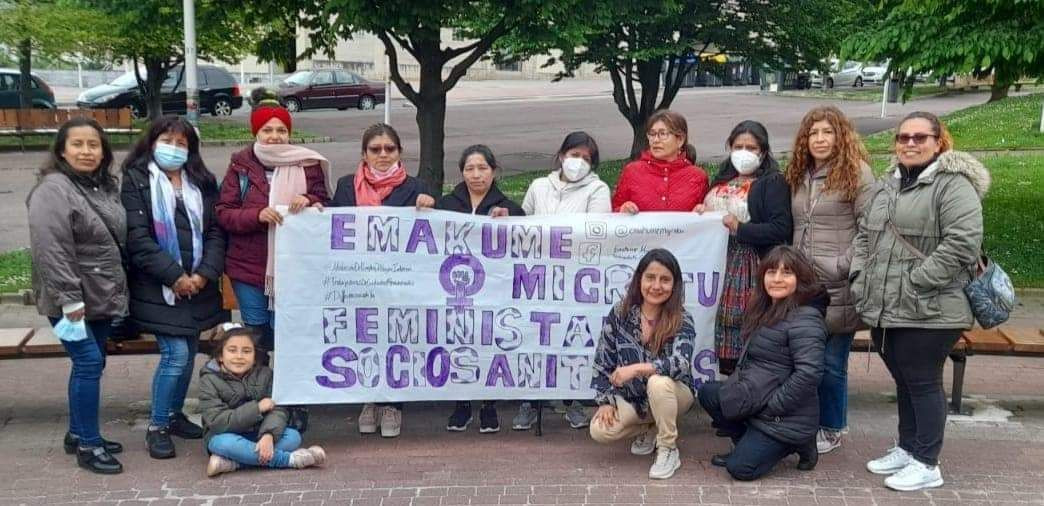Hostel for migrant domestic workers drowned by mafias
- They don't call it housing, it's a shelter for them. The idea is not to live in that house, but to have a shelter while they don't sleep. However, more and more women are staying in the hostel in Zestoa, as when they are out of work they have no choice to rent the room, but also not many people working. They have many backpacks on their backs. The members of Malen Etxea have known the mafias that bring Latin Americans and told us how they act. The original version of this article has been published in the May issue of Danbolin de Zestoa.
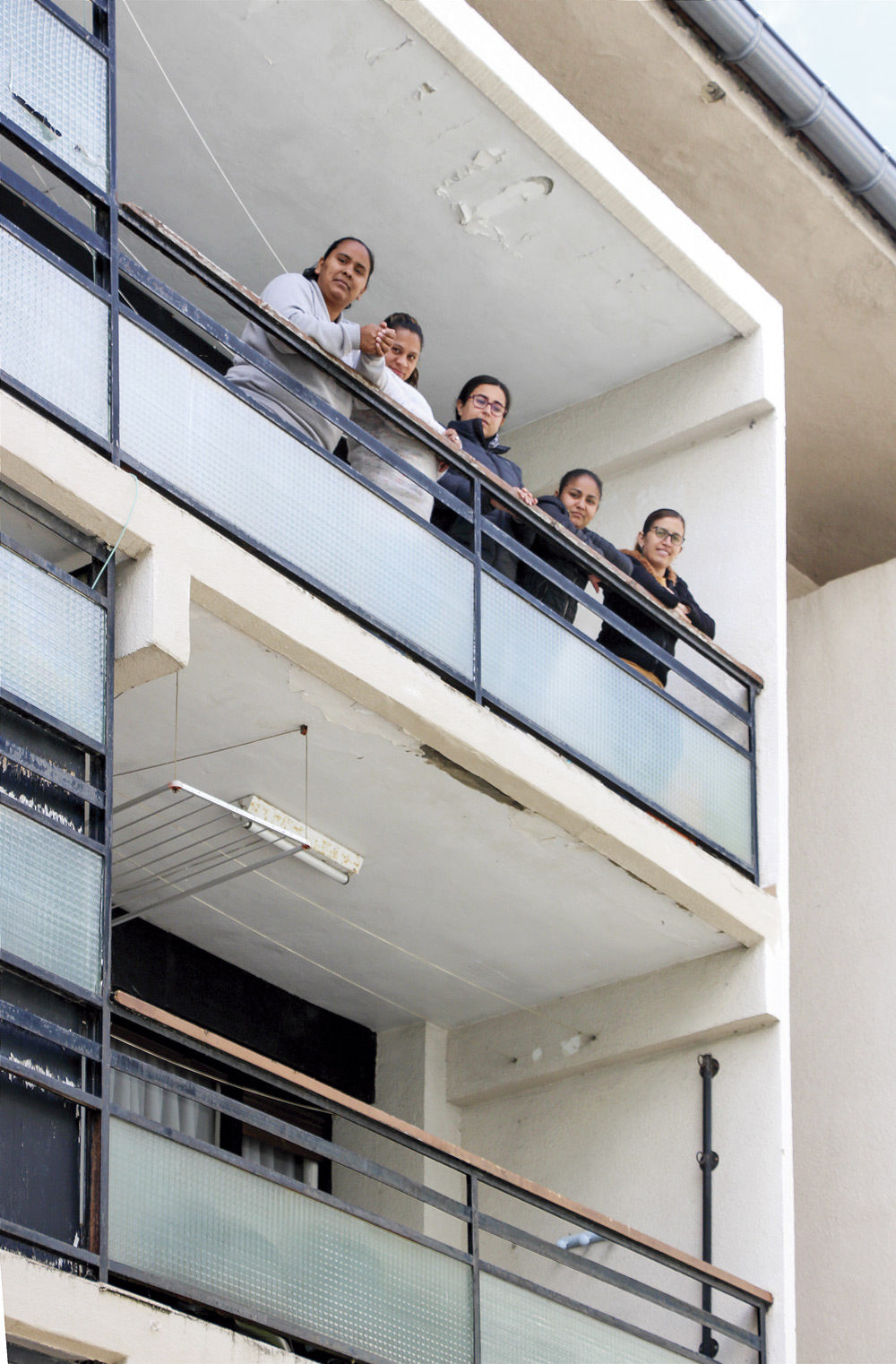
Zestoa housing is managed by Malen Etxea. Malen Etxea is based in Zumaia and is a partnership that defends the labor rights of migrant domestic workers and empowers women. Housing is not owned by Malen Etxea, but by the Church. It has been a cural house and for years it has been empty. Neither the Malen House nor the migrant women living in it pay rent. The Association grants the Church annually the amount it receives through grants, which is around EUR 1,500-1,700. The house is old and needs great innovations. Citizens have recently been asked for EUR 3,000 to be able to cope with the façade repair and renovation costs of the electricity plant. The Church owns the house, but it has shown no intention of spending money on reforms. The EUR 3,000 has been achieved in the short term.
Six migrant domestic workers are usually housed in the hostel. Lately, however, members of Malen Etxea are suffering a lot. They assumed that, in about three months, women could start living on their own, renting a room in a house. But they are often unable to do so. Some do not get a job and others do not escape the precariousness of the domesticated worker. In other words, they have reduced wages and economic burdens in the countries of origin, so that children and their families can often and often return the loans requested to banking institutions.
Jéssica Guzmán Correa and Girsilane Becerra are members of Montes Malen Etxea. The first is Chilean and president of the association. The second is the Brazilian and the one who has just begun to work in the association. They know a lot about the scrolls of migrant women. However, both were surprised when the expert who analyzed the trajectories of women traveling from Latin America to Europe to work in the home made a diagnosis: trafficking. This expert was invited to Zestoa by Malen Etxea and presented to the girls in the hostel. This conclusion came after several questions to the girls: they were under the grip of the Mafia. And so he let the members of the association know. Guzman says: “We were surprised, because we asked the three and four young people we had in the hostel: Where have you come to? How did you get the money? What is the name of the woman who received you when you came here? Our questions escaped. We didn’t even know what the workers’ trafficking was, that didn’t get us into our heads.”
At first they had to believe, but as they know these kinds of circumstances they have learned the role of the mafias. Malen Etxea has set an example. The young woman approaches the mafia and instead of dealing with the lender or bank of her entire life, she adapts to them. You have been told that you will be prepared for a trip and that in Europe you will find work at home or take care of the elderly with ease. He will therefore repay the loan without any problems. It is a loan of EUR 7,000. The mafias prepare you for a trip, take your passport out, and a woman awaits you in Bilbao who will receive you. The child, on the other hand, will not receive EUR 7,000. The Basque company will have to provide more than EUR 5,000 for travel costs. The platoon, which will receive about EUR 1,700 in its home town of Latin America, will arrive in Bilbao with that money. The woman waiting for her in Bilbao will take her about EUR 1,000 and leave her with about EUR 400. As soon as he arrives, he begins to give back the money he must.
Jéssica Guzmán Malen President of the House: "We didn't even know what the workers' trafficking was, nor did it get in our heads."
Guzman says: "The Mafia is not looking for a job, it has to find it. If he does not find it he will tell him to go to Seville, where there is work gathering crops. And from that work, there's a very small leap into prostitution. The girl has to work because she has to pay the debt. If you don't pay, you'll be threatened by the phone, saying that you're going to take the house away from the family, that you've got it mortgaged. They live slaves as they get their debt back.” If you don't have a job, you'll see them red, and if you have a job, you'll give it to the Mafia, but you can't rent a room to sleep either. All the salary goes to Latin America and not to family members.
Who lives in the hostel?
It is now the young girls who are coming to the hostel in Zestoa, but it has not been the profile that has been maintained until today. The women who attend Malen Etxea come from Latin America and the Caribbean and are between 30 and 40 years old. They are single or separated mothers, or married but in a precarious situation. They come to work to help the people there. They know that the only option will be care, which will be home workers. Some of these women have dropped out of the plane and are heading directly to the shelter, although a friend has told them that in Zestoa they will have room to sleep in the first few days. Other women have been left here without a job and although they have managed to do so for a while, they suddenly run out of money to pay for the rent. Others have lived for long years in the home of the elderly they care for, but at a certain point that person has died and are homeless.
Harsher situations
Our interlocutors say that the weakest are without papers. The law on aliens prevents them from getting papers in the first three years, but that doesn't mean they're not going to work. Working without papers means accepting worse salaries and unfinished hours than the one who has the paper. They earn much less than the interprofessional minimum wage. According to Guzmán, 90% of women who work all day in a home do not have the financial resources to rent a room. They have debts in the country of origin, they have children, each comes with their backpack. There are quite a few landlords without papers. In fact, they are the caregivers, that is, they are taken to be with a person who needs care, but they are dedicated to everything: cooking, cleaning the house, making in the garden, feeding the cows, washing the clothes, sanding, working at a family member’s home…
The disappearance of resident household employees
The resident household employee is the employee who carries out the work of the house and lives in it. We have asked Guzman and Becerra what their main claim is and the answer has been clear: “Malen Etxea’s main demand is to end resident domestic work. Alternative care systems exist in Europe for people in need of care and function well. You can't have a woman working tirelessly at home. That worker also has to live, needs rest.” The model of workers who work and sleep in the same house is said to exist only in Portugal, Italy and Spain, at least in Europe. The interlocutors call on the political leaders to take responsibility. In an increasingly ageing society, and given that people from home work outside the home, and that many elderly people do not want to live in the home but at home, they are asked to organize concrete social policies. The interlocutors know that relatives of dependent elderly cannot pay two or three salaries, and they also believe that it is not legitimate to force one worker to work three. They call for the burden to fall off the relatives and for the responsibility to be assumed by the authorities.
While this social model does not represent a first line of care and does not find solutions through public policies, family members have assumed the role of employers and the precarious, the women coming from afar, will take care of our homes, our children and our elderly.
The LAB Union Will Push Home Workers Convention
Domestic employees do not have an employment agreement, they are in the Domestic Service under the Special Regime. They have no agreement because the representation of workers and companies does not come to a minimum. In general, at each workplace (i.e. at home) only one worker works, and corporate representation in this case is family members of households. Neither workers nor employers are organised.
The LAB trade union wants to take advantage of the opportunity offered by Article 87.3 of the Workers' Statute to convene a negotiating table for the convention. If a labour agreement were to be reached, it would be the first for the sector.
Oskar de los Bueis is a member of LAB and tells us that the convention is not an objective if it is not to achieve adequate working and living conditions for domestic workers. The union’s intention is to bring together and promote domestic workers and agents working in defence of their rights. From the Bueis considers that if a collective agreement was achieved it would be an important tool for confrontation. Through the call to an agreement, it is intended to bring to the table the tasks of surveillance and enhance the debate: who, how, under what conditions should work; who has responsibilities in this issue; how should the care model be constructed...In this sense, they have denounced the intention of interpelling different public institutions of society,
We asked the LAB member about the possibilities of getting an agreement: “Depending on the build-up of forces, we will reach an agreement or not. Workers have been seen as victims, their precarious working conditions have been mentioned. We now have the opportunity to make a convention. What can be the excuse for not doing so?”
The union has already transferred the proposal to several associations of domestic workers and its intention is to create a platform between the different actors after the summer so that workers can take over and be willing to the negotiating table. The platform would analyse the situation in the sector, list the problems and address the solutions. LAB expects Confesbask to be on the other side of the table and, if he does not, he will go to court to decide on his future. LAB has not clarified how it is going to bring the issue with the other trade unions.
Maule, 1892. Eight women from the Salazar Valley headed home from the capital of Zuberoa, but on the way, in Larrain, they were shocked by the snow and all were killed by the cold. Of the eight, seven names have come: Felicia Juanko, Felipce Landa, Dolores Arbe, Justa Larrea,... [+]
International Migrants Day is celebrated on 18 December. Last year, an institutional event was held at the Alhóndiga in Bilbao in cooperation with the social partners and I was invited to participate. There I had an unbeatable opportunity to meet new creators and, above all, to... [+]









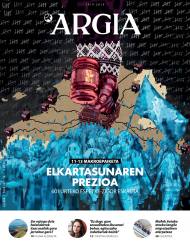

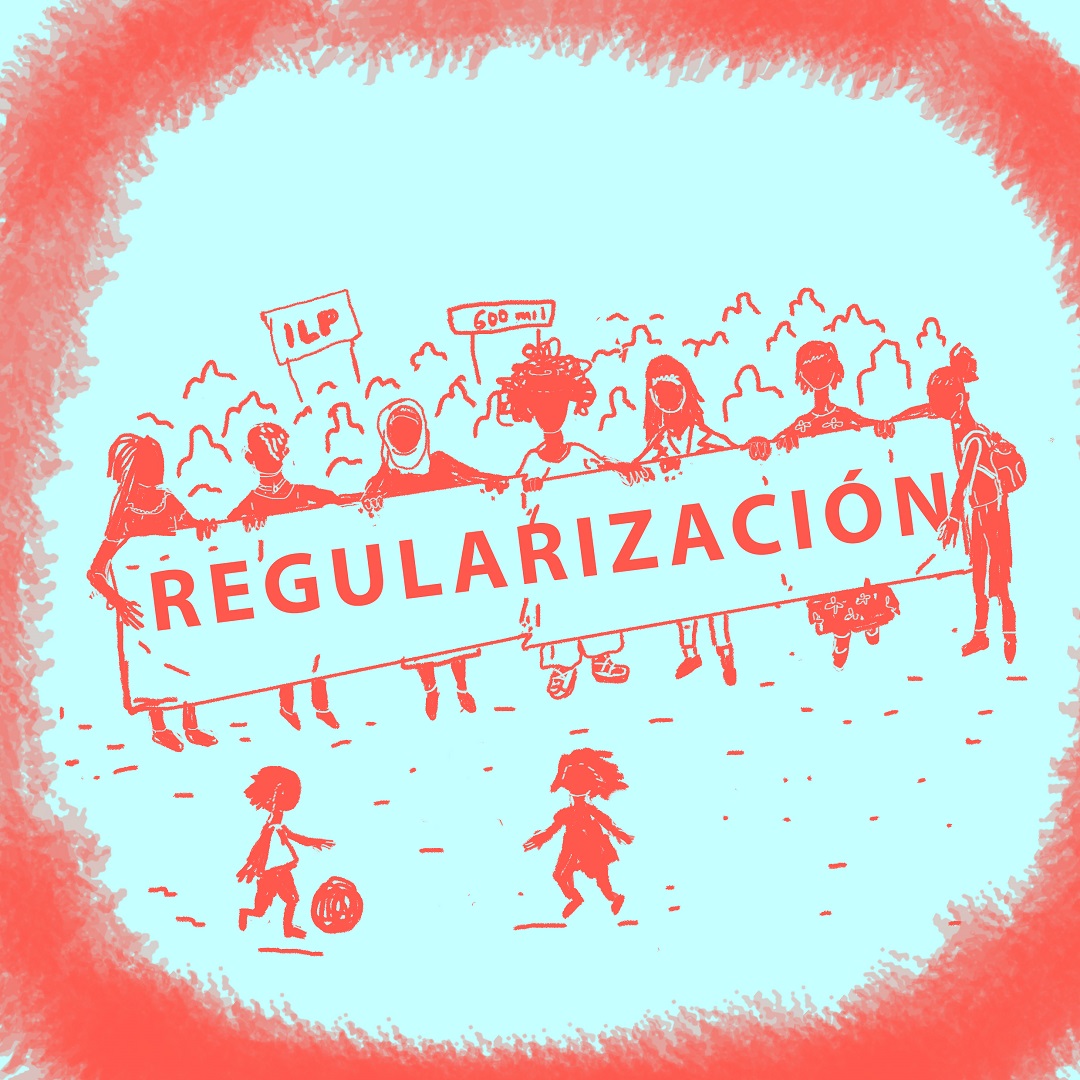
.jpg)
